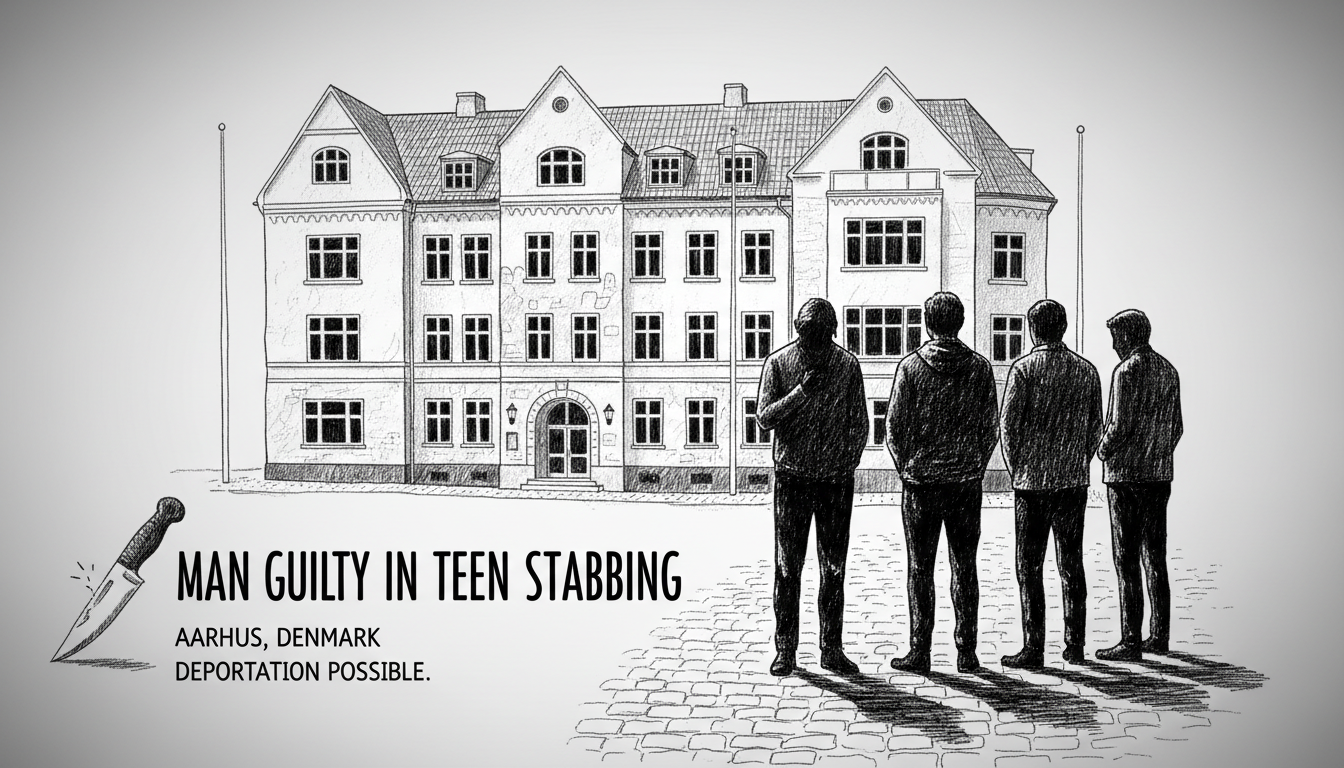A Danish court convicted a 28-year-old man of manslaughter in a fatal stabbing case that shocked the local community. The verdict came after a series of court hearings that began in October.
The attack occurred in mid-December just after midnight on Reginehøjvej in Aarhus N. A 19-year-old victim faced a violent assault outside a residential building entrance. A group of individuals surrounded the teenager and launched a brutal attack.
Punches, kicks, and knife strikes rained down on the young man. He suffered multiple severe injuries described in the court documents. The assault damaged arteries in his abdominal region. It also shattered one shinbone and broke his hip.
Three other defendants avoided murder charges but faced convictions for violence resulting in death. The court cleared them of murder under the penal code but found them guilty of the lesser charge.
The case highlights ongoing concerns about youth violence in Danish urban areas. Similar incidents have prompted public debates about gang activity and prevention measures in recent years.
Senior prosecutor Jesper Rubow will present sentencing recommendations later today. He will argue what punishments the four men should receive according to his assessment. Defense lawyers for the accused will then present their arguments.
Court members will then withdraw to deliberate. They plan to announce the final judgment in late November.
The prosecution seeks prison terms for all four convicted individuals. They also aim to secure deportation for three of the men. This would require stripping one defendant of his Danish citizenship. The other two face automatic expulsion as non-citizens. The fourth man has no foreign background and avoids deportation risk.
Denmark's legal system allows for deportation of foreign nationals convicted of serious crimes. The country has tightened immigration policies in recent years. Violent offenses often trigger automatic expulsion proceedings for non-citizens.
Local residents expressed relief at the verdict but concern about neighborhood safety. The case has drawn attention to youth violence prevention programs in Aarhus. Community leaders call for increased intervention efforts targeting at-risk young people.
The sentencing phase will determine the practical consequences for all involved. Legal experts expect substantial prison terms given the violent nature of the crime. The court must balance punishment with rehabilitation considerations.
International readers should note Denmark's progressive but strict justice system. The country maintains relatively low crime rates but faces challenges with urban violence. Cases like this often spark national conversations about integration and crime prevention.

